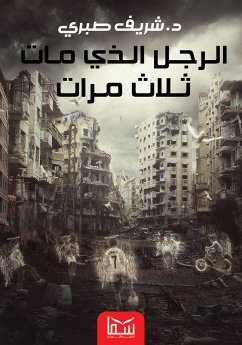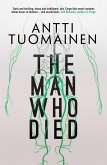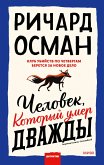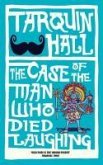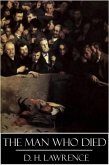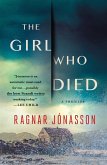Writer Sherif Sabry dedicates his novel "The Man Who Died Three" to Arabism, that Arabism that resembles a prostituted woman dancing for whoever gives her more money, an Arabism that is no longer sufficient for all paths in this life. Sabry did not write this novel because he is a political critic, nor to raise and discuss political issues, strategic issues, or human rights. From his point of view, he sees politics as the main and primary reason for the annihilation and death of millions since the creation of life on this planet. Rather, he is writing a sad story for us. The story of a nine-year-old boy who died only because he lived in the city of Aleppo, a city whose men decided to play the game of politics. The result was only the death of thousands without knowing the reason. In this novel, we find that the events were documented from the point of view of that young child, not from the point of view of politicians or officials. This child, in whose face life closed its doors, found nothing in front of his door except death, standing and knocking, so he had no choice but to open it and greet him. Same, yes, in this novel, this child will die, Bilal will die! We are all accused of killing Bilal, we are all criminals, and God will ask us about him: Why did you kill that innocent child? This is what the writer indicated to us in his novel. He believes that everyone is guilty of the death of this child, as it is a scene that occurs in our reality every day. The child Bilal tells his story in his own words, telling about his difficult life, his life that passed through three stages that fate divided for him: a nine-year-old boy, handsome, with golden hair all over his head, as if he were a prince, but he is helpless and unable to complain, unable to scream out loud. To complain about the injustice and lack of justice of life. Bilal conveys to us the scene of the sea, the sea in which his small body was fighting in a fierce battle, a battle with its powerful waves, predatory sharks, and the darkness of a dark night, a sea invaded by the smell of death, a death wishing for more corpses, a death that pounced on this poor child, spilling blood from his lips. And water filled his weak lungs, so he had no choice but to ask God for help, God alone, in front of us, as Bilal called us, for we are all criminals and participants in killing him. Bilal tells about his life, his life, which is similar to the life of every Syrian child. His house is beautiful, its walls are calm and tranquil, filled with jasmine, overwhelmed with love from his parents, his mother Maysoon, his father Abdul Rahman, his aunt Sawsan, his grandmother, his sister Yara, their neighbors, his parents' friends, and his aunt Maysoon's fiancé, all of whom fill His life with love, tenderness and happiness. But this happiness did not last. The war broke out in Syria until it spread and reached the city of Aleppo, where they live. This war began to bring misfortunes into their lives one after another. His father's hand was amputated, his grandmother and his schoolmates and neighbors died. They were forced to leave for Turkey and live in a camp. Their situation is the same as all Syrians. Their lives begin to improve, but only slightly, when they move to live in an apartment. Life becomes harsh on them again, and their living conditions worsen. The family decides to leave for Greece via an arduous journey on an iron boat, and that was the end. They all die in a painful way, like everyone else. Syrians displaced from their country, all of them perishing within the fierce sea waves.
Dieser Download kann aus rechtlichen Gründen nur mit Rechnungsadresse in A, B, BG, CY, CZ, D, DK, EW, E, FIN, F, GR, H, IRL, I, LT, L, LR, M, NL, PL, P, R, S, SLO, SK ausgeliefert werden.
Hinweis: Dieser Artikel kann nur an eine deutsche Lieferadresse ausgeliefert werden.

